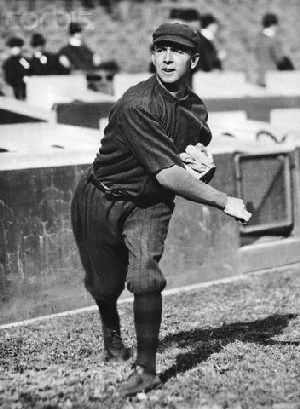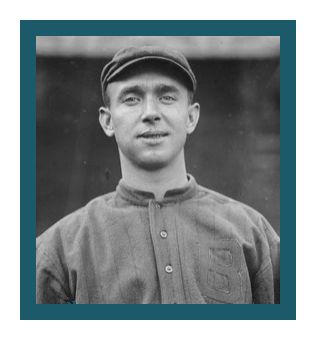|
“FENWAY'S BEST PLAYERS”  |
|||||
Though he stood only 5'9.5" and weighed just 160 lbs., Dick Rudolph was a large component of George Stallings' "Big Three" that helped lead the 1914 Boston Braves to their miraculous pennant and World Series sweep. "He was the bellwether of the pitching staff," said Braves coach Fred Mitchell, "and being a little fellow, I believe his success had much to do with big Bill James and George Tyler putting out that little extra effort to keep pace with the cocky kid from the Bronx." Unlike the hard-throwing James and Tyler, Rudolph was a "pitching cutie" who relied on his great curveball and spectacular control. He also threw a spitball, but "about the best you could say for it was that it was wet," recalled his catcher Hank Gowdy.
Ed Barrow signed Rudolph
to a 1907 Eastern League
contract with Toronto.
"Baldy" was a fine
minor-league pitcher,
posting 13, 18, 23, and 23
wins in 1907-10. Back in
New York, his brother, who
worked at the old New York
Press, kept his
name in the local papers
by planting stories of the
"It's a crime that Rudolph
doesn't get called up"
type. At the close of the
1910 season the New York
Giants gave him a shot,
probably at the behest of
Toronto manager Joe
Kelley, John McGraw's old
Baltimore Orioles
teammate. "He has terrific
speed, good control, is a
quick thinker and mixes up
his 'assortment' as well
as any twirler in the big
leagues," Kelley said. "I
look for him in a few
years to be even or as
great as Mathewson."
|
|||||

